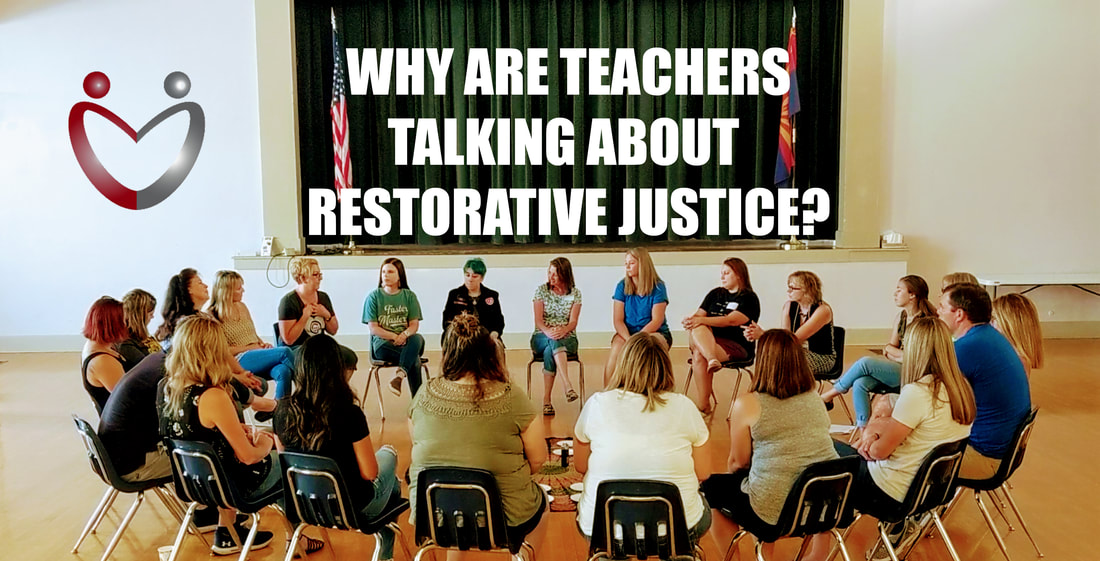|
It's amazing when you step back and realize that you're part of something far greater than you.
That's something that Northern Arizona Restorative Justice has taught me. I saw it in action today as I watched another group of Northern Arizona educators impassioned by principles they were learning. Even on the third day of training, when given a break, the teachers and administrators couldn't help but talk about putting restorative practices to work in their schools. The principal of Dr. Daniel Bright Elementary, Jessi, shared with me a story of why she loved the nature of this work. She told of a young girl who was very difficult in class, and who was exhibiting common signs of trauma. The girl was disruptive. She was withdrawn and quick to react with a large range of behavior. She was hard to reach, but slowly and patiently, using restorative practices, this girl began to change. It started with a focus on relationships. First, was a relationship with a therapy dog. Then a relationship with a teacher. Eventually, the impossible occurred as the girl connected with the principal she had once feared. Trust has slowly manifested with a patient focus on connecting and compassion. The trauma was still evident in some behavior, but trust existed, where before, there had been none. Trust had begun to heal the trauma. Why are teachers talking about healing trauma? And better yet, why are they excited about it? Because that's a side effect of implementation of restorative principles! That's not even the primary purpose of the policy changes that can be implemented from these principles. Schools are seeing all sorts of benefits from changing from a punitive system of punishment, to a restorative system of proactive prevention. Benefits include: Communicating more clearly Ability to identify needs Seeing the needs of others Understand how to take responsibility Taking a direct role in the justice process Repairing harm when it occurs Restoring broken relationships Creating order If you're not familiar with the principles of restorative justice, download a copy for free on our website home page (narj.org). Read through these 10 principles and begin to consider how they might change your life and those around you. Restorative principles change everyone involved, as being a part of something greater than ourselves, makes us all greater.
1 Comment
|
Jeremy
|
